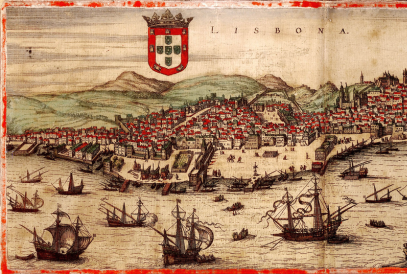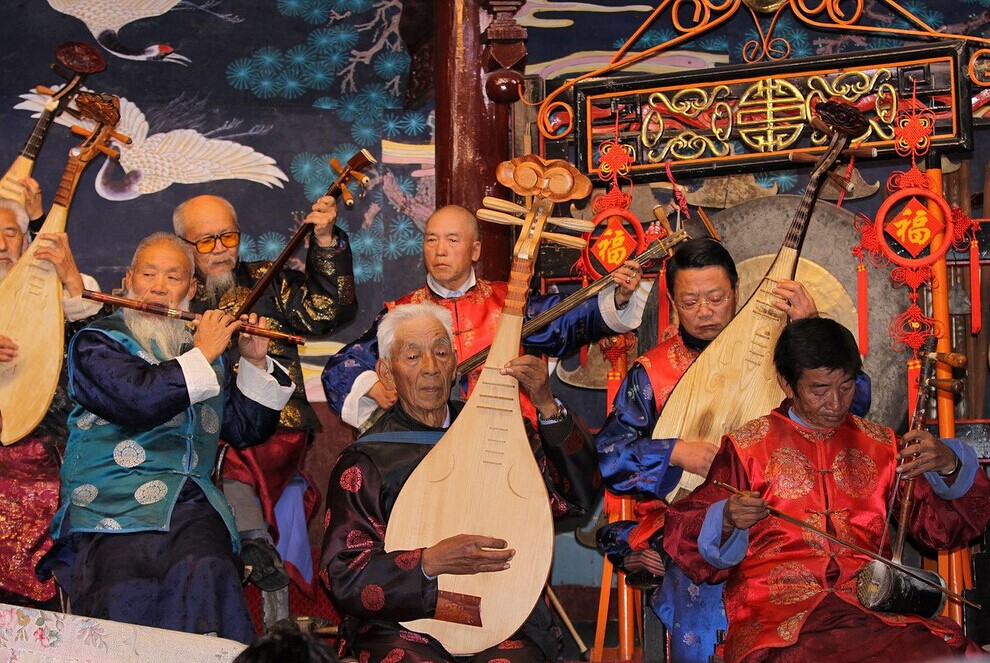25361. (Wolfgang Amadeus Mozart) Bastien et Bastienne, Operetta in One Act, K.50
. . . . . [d. Clemencic; Choy, Kirchner]
25362. (Audra McDonald) Sing Happy
25363. (Wham!) The Best of Wham
Read more »
Category Archives: CI - Listening 2018
First-time listening for December 2018
First-time listening for November 2018
25328. (Richard Strauss) Macbeth, Tone Poem after Shakespeare for Orchestra
25329. (Seun Kuti & Egypt 80) Many Things
25330. (Infected Mushroom) Converting Vegetarians
25331. (Hildegard of Bingen) O vis aeternitatis
25332. (Hildegard of Bingen) Nuch aperuit nobis
Read more »
First-time listening for October 2018
25296. (Inerane) Music from Agadez
25297. (Silvius Leopold Weiss) Suite #1 in F for Lute
25298. (Silvius Leopold Weiss) Suite #2 in D for Lute
25299. (Silvius Leopold Weiss) Suite #3 in G Minor for Lute
25300. (Dayglo Abortions) Out of the Womb
Read more »
First-time listening for September 2018
25254. (Danger [Franck Rivoire] ) 太鼓 [Taiko]
25255. (Paul Oakenfold) Essential Mix: Live in China
25256. (Kanye West & Kid Cudi) Kids See Ghosts
25257. (Girolamo Frescobaldi) Ricercar #9 con quattro soggetti for Harpsichord
Read more »
First-time listening for August 2018
25172. (Giovanni Bononcini) Astarto [complete opera; d. Biondi; Valentini, dalle Molle,
. . . . . Müller-Molinari]
25173. (Wale [Olubowale Victor Akintimehin]) Ambition
25174. (Brian Ferry) These Foolish Things
25175. (Johann Sebastian Bach) Cantata #80a “Alles, was von Gott geboren” [variant of #80]
Read more »
Kurdish Folk Music

Kurdish band Nishtiman performed their second album “Kobane” Toronto, Canada, Sep. 29, 2017. The band unites musicians from the different Kurdish communities of Iraqi Kurdistan Iran, and Turkey.
For a pedigree of musical continuity, you can’t beat Kurdistan. The oldest known notation of music dates from the ancient Hurrian kingdom, in the second millenium BC. Two sacred hymns recovered by archaeologists from that ancient civilization, located in the heart of today’s Kurdistan, are in the same mode and bear a visible kinship to the Kurdish folk music of today. The modern Kurdish folk movement is fragmented: variant scenes in Iraqi Kurdistan, Iran, Syria, or Turkey, as well as a Kurdish diaspora in Europe and North America. In Turkey, singing in the Kurdish language was against the law, punished by imprisonment and physical abuse, until very recently. In Iran, however, it thrived, and in newly self-governing Kurdistan, I’m sure it must be undergoing quite a renaissance. Other than a few stray pieces on general collections of middle eastern music, the only recordings I have are one by instrumentalists Tahmoures and Sohrab Pournazeri, with accompanying vocals by Rojan, entitled simply Kurdish Folk Music, and a cd called Kurdish Dances featuring Mohammad Bhamani on dozak and sornâ, ‘Abdollâh Nabiollâhi on dobol, and vocals by ‘Abdollâh Qorbâni. But I heard a marvelous live concert last year, at the Agha Khan Museum in Toronto. The first thing that strikes the listener is the music’s accessibility. The melodies are catchy and upbeat, and not buried in the microtonal intricasies and melisma that makes it hard for outsiders to follow middle eastern music. You could easily party to this music, in a modern disco, though it is purely traditional.
Estêvão Lopes Morago
Much of the artistic achievement of the Portuguese Renaissance was destroyed by the great Lisbon Earthquake of 1755, which killed 30,000 people. Among the losses where most of the works of the composer Estêvão Lopes Morago (c.1575 — after 1630). But some of his work that survives indicates that he was very good. I have only five short pieces, recorded by the Gulbenkian Foundation choir on their Portugaliae Musica series. All are polyphonic pieces, four of them for four voices, one for a double choir of 3 and 4 parts each. The most beautiful is the Jesu redemptor, which is a litany for the dead, praying for Christ to accept the soul of the departed, and perhaps sung during the cortège, between the house of the deceased and the church. Morago was actually a Spaniard, but apparently spent most of his life in Portugal as choir-master of the Cathedral of Viseu.
First-time listening for July 2018
25132. (Arthur Sullivan [& W.S. Gilbert]) The Sorceror [complete opera; D’Oyly Carte]
25133. (Global Communication) Fabric 26 [DJ Mix 12 by Mark Pritchard, 12 by Tom Middleton]
25134. (Giacomo Meyerbeer) L’Africaine [complete opera; d. Capuana; Stella, Nikolov, Rinaldi]
25135. (Kunnakudi Vaidyanathan) Golden Krithis: Colours
25136. (3 Inches of Blood) Here Waits Thy Doom
Read more »
Sichuan Folk Song
The huge western Chinese province of Sichuan has its own, distinct history. It consists of a broad and fertile basin around the city of Chengdu, ringed by a sparsely populated wilderness of mountains, forests and swamps. While this was a center of ancient non-Han civilization as early as the second millennium BC, it gradually became Sinified over the centuries, and the city and fertile regions are inhabited by Han Chinese speaking a southwestern dialect of Mandarin. However, most of the province consists of rugged mountains, and these are the home of many minority groups, ethnically and linguistically not at all Chinese. Among them are the Yi, related to the Burmese, the Qiang, and the Naxi (or Nakhi). The western half of the province is culturally closer to Tibet, many of the minorities speaking dialects of Tibetan, or closely related languages. All these minorities have distinctive musical traditions, and the metropolitan musical mainstream of China has drawn from them with the same mixing and mining process that went on in the development of America’s folk music. The album I have, Sichuan Folk Song and Ballad, Volume 2 gives a good sample of this variety. Personally, the more “folky” the songs are, the more they appeal to me. I particularly like the Naxi song “This Hill is Not As High As That One”.
China’s many ethnic minorities, who comprise tens of millions of people, have been hidden from the world’s view by millennia of obsessive imperial centralism and racism. In some cases, there are cultures of a million or more people about whom one cannot find a single book in a large university library. Can you imagine what it would mean if there was not a single book in a major library devoted to Wales, or the Basques, or to Estonia? Fortunately, the musical wealth of Sichuan can give us a foot-in-the-door to celebrating a diversity that has been kept from our view by ideology and intellectual laziness.
First-time listening for June 2018
25099. (Hector Berlioz) La Damnation de Faust [complete opera; d. Inbal; Gulyás, Lloyd, Ewing]
25100. (Dinah Washington) Dina Washington [Verve Jazz Masters #40]
25101. (Imagine Dragons) Night Visions Live
25102. (Lakshminarayana Shankar) Raga Aberi [w. Zakir Hussain]
25103. (Slam) BBC Essential Mix, May 1,1994
Read more »

